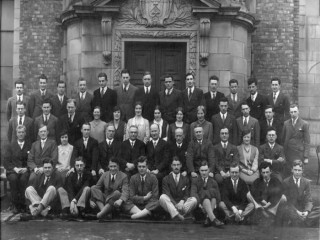
Butler Alfred Valentine biography
Date of birth : 1899-03-15
Date of death : 1977-07-16
Birthplace : Winchcombe, Gloucestershire, England
Nationality : British
Category : Science and Technology
Last modified : 2010-05-28
Credited as : Scientist and chemist, electrochemical kinetics and thermodynamics, The famous Butler-Volmer equation
0 votes so far
John Alfred Valentine Butler was born on February 15, 1899, in Winchcombe, Gloucestershire, England.
J.A.V. Butler, the British physical chemist, was the first to connect the kinetic electrochemistry built up in the second half of the twentieth century with the thermodynamic electrochemistry that dominated the first half. J.A.V. Butler had to his credit, not only the first exponential relation between current and potential (1924), but also (along with R.W. Gurney) the introduction of energy-level thinking into electrochemistry (1951).
However, Butler did not get all quite right and therefore it is necessary to give credit also to Max Volmer, a great German surface chemist of the 1930 and his student (at that time) Erdey-Gruz. Butler’s very early contribution in 1924 and the Erdey-Gruz and Volmer contribution in 1930 form the basis of phenomenological kinetic electrochemistry. The resulting famous Butler-Volmer equation is very important in electrochemistry.
Later Butler contributed to biochemistry, particularly relevant to cancer research. John Alfred Valentine Butler was the first to carry out kinetic studies with a pure enzyme, trypsin (1941). Many studies of the same kind have been made, with a variety of enzymes, and the results have contributed greatly to the understanding of enzyme action.
Butler was the quintessential absent-mind research scientist of legend, often lost to the world in thought. During such periods of contemplation he sometimes whistled softly to himself, though he was known on occasion to petulantly instruct nearby colleagues to be quiet.
















